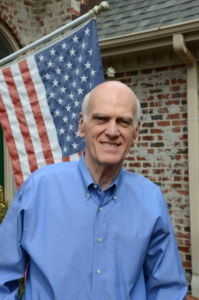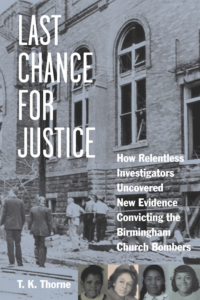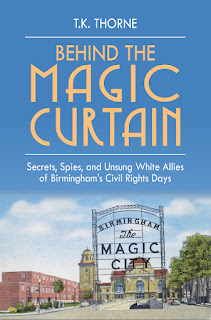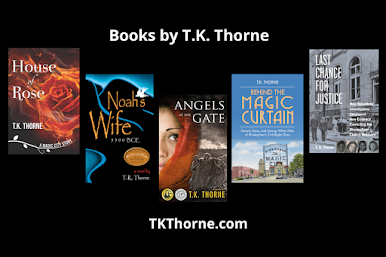A Name and a Promise —T.K. Thorne
Rob Langford is probably not a name you are familiar with. He was a quiet, thoughtful man who wanted to make things better. When the FBI chose him to serve as Special Agent in Charge of the Birmingham, Alabama office, he came with an open mind.
And that changed everything.
Langford realized there was edgy and sometimes dangerous tension between the African American community and law enforcement. Rather than just accepting this as status quo, he wanted to open communications between them and invited several leaders from the Black community to come “talk.”
It wasn’t easy to garner enough trust for anyone even to show up at the FBI office. Finally, he found a man who acted as a mediator and made it happen. Still, it didn’t go well. One Black minister blurted out, “Why didn’t the FBI investigate the bombing of the church? The FBI never did do anything.”
The minister was referring to the 1963 bombing of a Black church in Birmingham, where four young girls were killed. It had been thirty years since the tragedy, but the scars were far from healed. As a newcomer to the city, Langford did not know how to answer the question, but he made a promise.
“I will look into it.”
He could have chosen to say, “That’s been thirty years ago; we aren’t going back there.” But he didn’t.
Reopening the case was a far harder task than bringing distrusting people in to talk. Investigators spent 18 months just going through the old files. Suspects and witnesses were aging and some had already died. None wanted to talk.
But they pressed on. Because of Rob Langford, that cold case was reopened. Because of him and the team of investigators and prosecutors who worked on the case, the remaining two Ku Klux Klansmen —who had planted that bomb on a Sunday morning while young girls got ready for services—were indicted and tried, found guilty, and spent the rest of their lives in prison.
It didn’t bring those girls back, but it gave closure to their families and to the community and to the world.
The deaths of Annie Mae Collins, Cynthia Wesley, Carole Robertson, and Carol Denise McNair, along with the severe injuries of Sarah Collins and the bravery of the children who marched for their freedom and rights in Birmingham that same year, pushed Congress into passing the 1964 Civil Rights Act that made segregation in public places illegal in America.
Thank you, Rob Langford, for what you did. It was a moment when you could have turned aside, but you didn’t.
Rest in Peace, my friend.

George ‘Rob’ Robert Langford
May 7, 1939 – February 21, 2024
Personal Note:
I was privileged to call Rob a friend and to write about his story and the story of the team that investigated and prosecuted this infamous case over a period of almost forty years in my book, Last Chance for Justice.

![]()
T.K. Thorne writes about what moves her, following a flight path of curiosity, reflection, and imagination. Check out her (fiction and nonfiction) books at TKThorne.com



